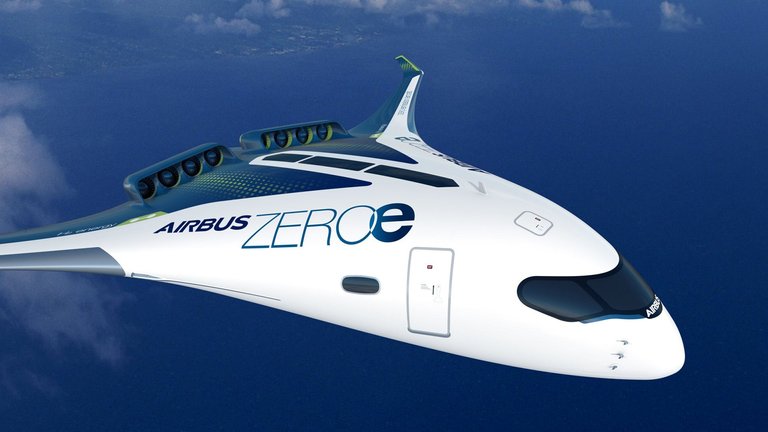If we have hydrogen which is a source of energy and we can get more energy in this way and if we break the water molecules with that energy then we could get more energy, the problem is that it takes much more energy to break the Water molecule of the which is achieved by burning hydrogen. If this were not the case, we would be able to use just 1 liter of water. We could be breaking and burning the hydrogen again and again or having energy in an almost limited way, but that breaks the laws of thermodynamics.
But the universe does not work like that and it takes much more energy to break down that water molecule than what we get from hydrogen and this is one of the reasons why it is an expensive product, although it could be the energy that drives cars, ships and There are even multinational aircraft, such as Airbus projects, which is a European aerospace company that also makes spacecraft that are based precisely on hydrogen.
They foresee a near future where airplanes move thanks to hydrogen.
But how dangerous is hydrogen, since it explodes, yes it is true, but gasoline also explodes, perhaps hydrogen has such a bad reputation because of something that happened on May 6, 1937, I am talking about the Hindenburg, a floating wonder, the German engineers had built a fabulous ship, 140,000 cubic meters of hydrogen, 10 engines, 245 m long and 41 m in diameter. In its time it was the technological equivalent of a space station, it was amazing to see it in the skies and also unfortunately it was the largest propaganda poster of Nazi Germany.
In this case, what happened that day was that after having crossed the Atlantic, the Hindenburg approached the mooring base at the Naval Air Station in New Jersey and the disaster occurred there. The causes were never clarified. There are various theories, including one of a possible sabotage despite the images, of the 97 people on board only 35 died, so if we compare it with a plane accident, well the chances of survival were greater with the Hindenburg although it was also close to land.
It was this accident that put an end to the dream of huge airships, well no, it turns out that airships could also be filled with non-exploding helium, but nevertheless shortly after the Second World War arrived which changed the whole panorama and when it ended By the Second World War, Aviation had reached an impressive technological maturity, the Hindenburg reached a maximum speed of 135 km per hour.
To cross the Atlantic the Hindenburg and reach New York took almost 3 days. After the war, airline companies could offer the same trip in four times less time and also for less money, so airships were not profitable, although Currently they are re-emerging for use in transporting goods, as I said, hydrogen can explode but so can gasoline, the question that should concern us is what is more dangerous, a hydrogen car or a gasoline car, since technically they are the same. safe since they have the same security systems.
In addition, hydrogen ones have some advantages over gasoline ones. In the event of an accident, the hydrogen used for cars is extremely pure, so a leak would generate a vertical flame that would be extinguished quickly, and since it is not toxic, remember that when it burns It turns water into water vapor, there would be no suffocating smoke, which is like what happens with gasoline, which is a huge advantage. What do you think? We will dominate hydrogen.
Thank you for visiting my blog. If you like posts about #science, #planet, #politics, #rights #crypto, #traveling and discovering secrets and beauties of the #universe, feel free to Follow me as these are the topics I write about the most. Have a wonderful day and stay on this great platform :) :)
! The truth will set us free and science is the one that is closest to the truth!
O hidrogênio foi o primeiro átomo que surgiu no universo após o Big Bang e sua fusão deu origem aos demais átomos. O hidrogênio é de longe o elemento mais presente na natureza, está em todo lugar, até faz parte do nosso corpo já que o hidrogênio ao se juntar a outros átomos cria moléculas essenciais para a vida, o mais básico é a água que é o H2O, dois átomos de hidrogênio e um de oxigênio átomo e o hidrogênio também é fonte de energia, é um combustível maravilhoso, pois ao queimar, ou seja, ao fazer reagir com o oxigênio, não produz contaminantes, o que temos é água novamente.
É tão abundante e ainda assim não o encontramos na natureza solto em sua forma gasosa que seria o H2, deve ser criado quebrando a molécula de água através da eletrólise, desta forma temos o gás hidrogênio, a eletrólise não é o único método para obter hidrogênio, mas é o fundamental e o mais simples.






Obrigado por promover a comunidade Hive-BR em suas postagens.
Vamos seguir fortalecendo a Hive